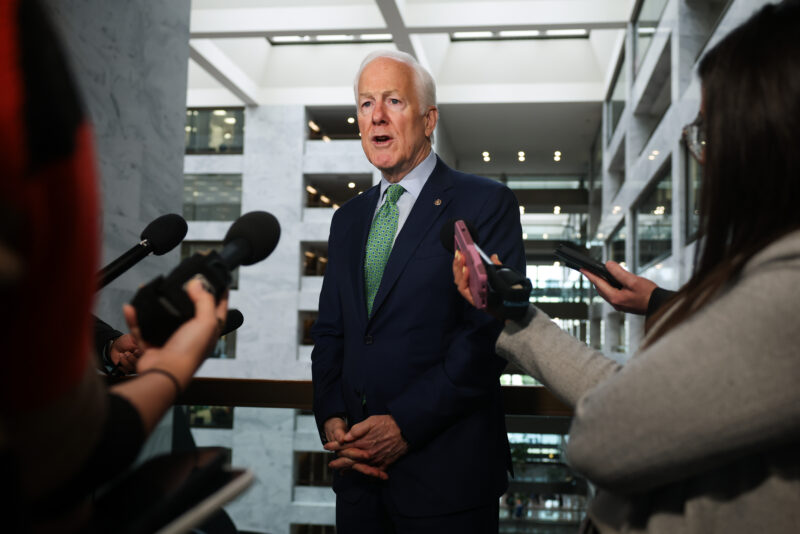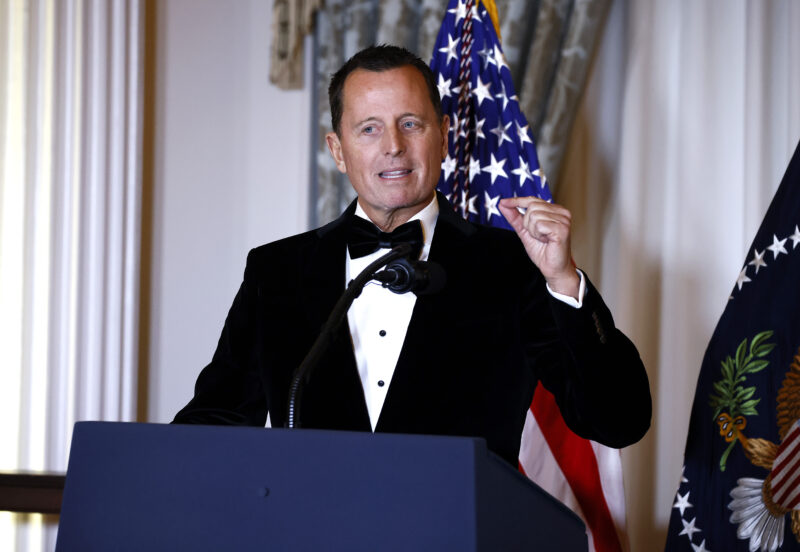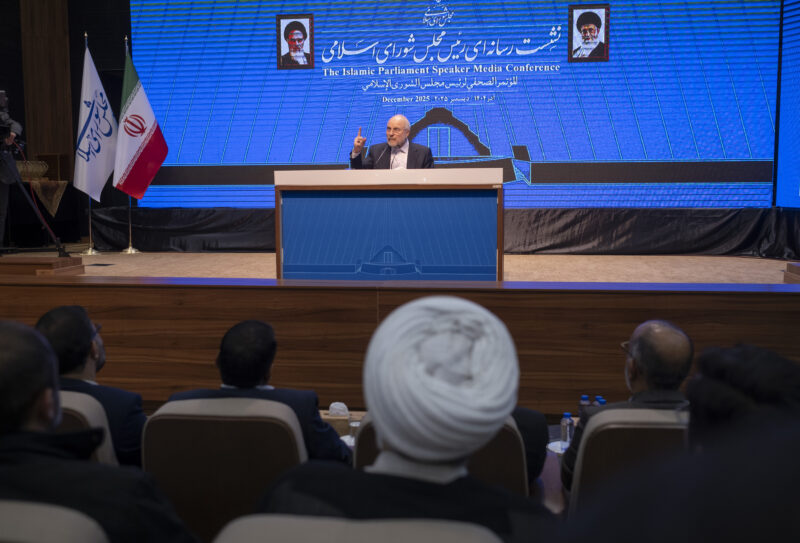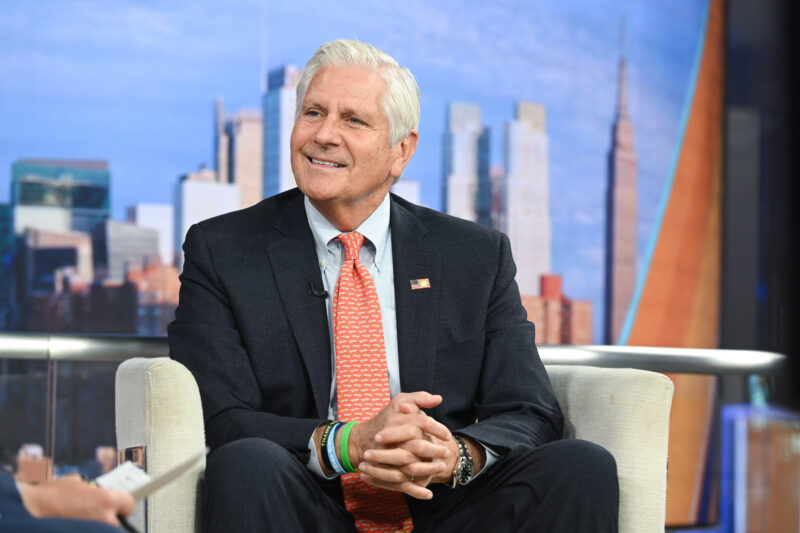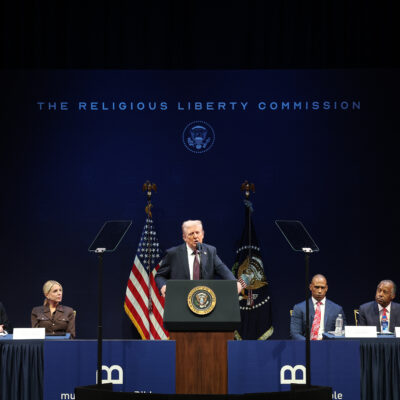Despite un-endorsing Bowman, J Street doesn’t view his loss as a victory
The progressive group’s president, Jeremy Ben-Ami, told JI that big spending by AIPAC could ‘break the Democratic Party’

NEW YORK, NEW YORK - JUNE 22: U.S. Rep. Jamaal Bowman (D-NY) speaks during a rally at St. Mary's Park on June 22, 2024 in the Bronx borough of New York City. Supporters gathered three days before New York's primary elections as incumbent Rep. Bowman (D-NY) attempts to retain his seat in a heated primary race. (Photo by David Dee Delgado/Getty Images)
When Rep. Jamaal Bowman (D-NY) ran for reelection to Congress in 2022, two years after his come-from-behind victory over longtime incumbent Eliot Engel, J Street was a strong supporter as he sought a second term in Congress. The progressive group offered financial support to Bowman, who had grown close with J Street’s leadership after he traveled to Israel with the group in 2021.
That ended early this year, when J Street PAC rescinded its endorsement of Bowman over his hostile rhetoric toward Israel after Oct. 7 — and his praise of a scholar who celebrated Hamas’ terror attacks. The move represented a major shift for the liberal Israel advocacy group: Just weeks earlier, J Street President Jeremy Ben-Ami had pledged to stand by Bowman through his 2024 primary.
Bowman lost his primary on Tuesday in a landslide to Westchester County Executive George Latimer, a moderate Democrat who appealed to the district’s large Jewish community, with the benefit of more than $14 million in AIPAC funding. Despite J Street’s unusual decision to withdraw its support for Bowman, Ben-Ami sounded downbeat about Bowman’s loss in an interview with Jewish Insider.
Ben-Ami’s takeaway from the race was not to celebrate the defeat of a lawmaker whose extreme rhetoric on Israel had alienated even many progressive Jews. Instead, he has used the outcome to warn about the corrosive power of AIPAC’s record-breaking spending. Ben-Ami declined to say if he considers Bowman’s loss a victory.
“It’s not either a victory or a loss for J Street,” Ben-Ami told Jewish Insider in a Friday interview reflecting on the race and the state of pro-Israel politics. “We were not, as an organization, taking a side in that primary.”
Technically, that may be true: J Street did not endorse Latimer, so the group didn’t have a horse in the race, Ben-Ami argued. But withdrawing its endorsement from Bowman — underscoring his views were beyond the pale for progressive Jews — was a major development in the primary that signaled the collapse of the congressman’s campaign.
“We didn’t endorse in the race. We never said vote against Jamaal Bowman. We never said vote for George Latimer. We never said vote against George Latimer,” Ben-Ami said. “We took our finger off the scales and said, ‘We no longer want to be backing him to help him win.’ That’s what we did. But that’s not taking a stand against him.”
Since Oct. 7, J Street and Bowman “have been on completely different pages” on Israel, said Ben-Ami. “We do not consider what is happening there to be a genocide. We don’t use the types of terms and the terminology that Jamaal Bowman uses, and the people who support him because he uses those terms wouldn’t be J Streeters.” In March, Bowman was forced to apologize after a video surfaced of him calling accusations of sexual violence on Oct. 7 “propaganda.” He called Israel a “settler colonial project” in June.
On Tuesday night, soon after Latimer was declared the winner, Ben-Ami took to the social media site X to express his views on the race. “It’s a mistake to read Jamaal Bowman’s defeat as a victory for pro-Israel Americans,” he wrote. “In fact, turning Israel into a wedge issue in Democratic Party politics is actually a major loss for those who hope to promote a bipartisan US-Israel relationship.”
He offered a word of warning to AIPAC, which made Bowman’s defeat a top priority, even though his own group shared the goal of defeating Bowman (though J Street did not contribute money toward that end). He cautioned that if AIPAC takes the playbook it used against Bowman and applies it in other races, doing so could “break the Democratic Party.”
“I’m saying to the AIPAC world, don’t take the fact that you spent $15 million and beat someone who was going to lose anyway, because he had lost his district, and make this the MO of the way we’re going to drive policy discipline in the Democratic Party,” Ben-Ami said. “Because you’re going to break the Democratic Party. You’re going to break the Democratic Party’s relationship with Israel. You’re going to break the Jewish community.”
Further, he said, AIPAC’s targeting of progressives could even have an impact on race relations between Jews and people of color. “It is a much deeper set of wounds that are being inflicted by this over-the-top intimidation and bullying and spending at this level against a progressive candidate of color,” Ben-Ami stated. “It’s not good for Jewish-Black relations. It is not good for generational relations within the Jewish community. It is not good for the Democratic Party.”
AIPAC’s big spending in the race earned condemnation from progressives like Rep. Alexandria Ocasio-Cortez (D-NY) and Sen. Bernie Sanders (I-VT), who held a rally for Bowman days before the election. Ben-Ami said the lesson of that spending will be that anyone who speaks their mind about Israel will lose like Bowman — even as his own group ostensibly supported the same outcome.
“In Democratic primaries, people are being told, ‘Do not say what you’re really thinking, don’t speak your mind, don’t advocate for American policy that may actually benefit the state of Israel, because if you do, you’re going to be beaten like Jamaal Bowman,’” he said. “That’s intimidation, it’s threats and it’s not the right way to make the case for a strong, bipartisan U.S.-Israel relationship.”
Ben-Ami clarified that Bowman should not be considered part of the pro-Israel tent, which he said stretches “from the right of AIPAC to the left of J Street.” Others who are also critical of Israel but ultimately supportive should be allowed to take those positions, he argued.
“That tent of support has to be able to include people who, unlike Jamaal Bowman, are critical of the government of Israel, but at the end of the day, supportive of the state and people of Israel,” Ben-Ami said. “The core of it is, Do you or do you not, at the end of the day, believe that both the Jewish people and the Palestinian people have a right to national self-determination and states of their own? That they both have legitimate grievances and both have legitimate rights, and that the United States foreign policy should be not at supporting only one of the two parties or punishing only one of the two parties, but should be working towards resolution of the conflict?”
It was on a J Street trip to Israel in 2021 that Bowman began to move further toward an anti-Israel position in Congress, he told Politico recently. Ben-Ami called Bowman a rare exception: “He’s the 1%. The 99% are the champions of American leadership to try to resolve this conflict for ensuring the hope and a future and rights, and that that’s the goal of the trip,” said Ben-Ami.
“I say all the time the single most important thing that J Street does is these trips, and it has had exactly the impact that we want it to have on 99% of the people that have taken the trip.”





























